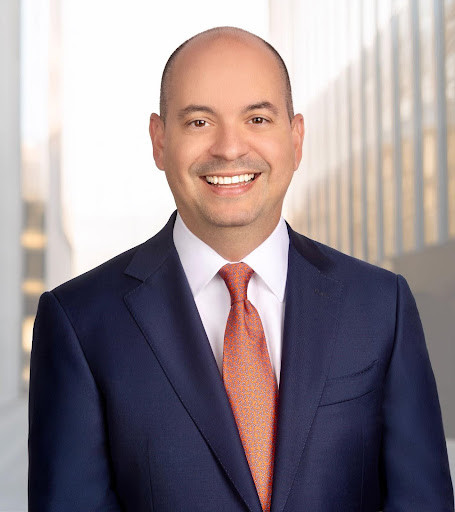
I am a lawyer who has spent years navigating the rhythm of court dockets, client meetings, and the ticking of the billable‐hour clock. Today, I believe we stand at a hinge moment in legal practice, where artificial intelligence must be framed not as a rival, but as a partner, one that can liberate us from the oppression of hours and restore the human connection at the heart of the lawyer–client relationship.
Too often in legal work, the question is: how many hours did you spend? The rise of AI tools changes that question into: what value did you deliver? According to the American Bar Association's 2024 Tech Report, just 30.2 percent of U.S. attorneys said their offices were currently using AI-based tools, and adoption is much higher only at very large firms. Meanwhile, a report estimated that embracing AI could save roughly $20 billion annually for the U.S. legal profession, translating into an extra five hours per attorney per week. What those figures tell us is two-fold: the work to be done is real, and the opportunity to redefine how we serve clients is urgent.
AI's power lies in automating the repetitive: document review, contract analysis, and legal research. And yes, the idea that we might bill fewer hours might unsettle some. But I argue this is not a threat, it's an invitation. It's a chance for lawyers to pivot from time-keepers to strategic advisors; from producing memos to delivering insight. In that shift, I believe the longstanding billable‐hour model will continue its decline. The logic is simple: if AI slashes the hours required for much of the menial work, clients won't pay for hours; they will pay for results. Authorities note that the traditional billable hour accounts for roughly 80 percent of fee arrangements in many firms. A flat- or value-based fee structure is inevitable.
But let's be clear: AI will not replace the lawyer. No algorithm can replicate the nuance of human judgment, the trust you build in a meeting across the table, the unforeseen wrinkle in a transaction that only a seasoned attorney can spot. I believe the essential role of the lawyer will be to harness AI, tool it, question it, verify it, and then to bring our uniquely human attributes: empathy, ethics, strategy, and connection. When used wisely, AI amplifies our capacity; when used carelessly, it substitutes for judgment, and that is the real danger.
Take a practical example: a business deal involving a multi-hundred-page agreement. An AI model trained for law-specific contract review can scan the document, validate consistency of clauses, flag anomalies, and check sourcing, all in minutes. That time saved allows me to have a strategic conversation with the client: What is our real risk? What's our negotiation angle? Clients don't want to hear "I spent ten hours." They want to know, "I found this subtle gap that protects you." Using AI smartly gave us that time. What they remember is not the 10 hours; they remember the value.
Yet I also see the pitfalls. Surveys show that while roughly 31 percent of legal professionals now say they personally use generative AI at work, only about 21 percent of firms have implemented it firm-wide. There's a gap between potential and practice, and it stems largely from two intertwined issues: trust and human laziness. If a lawyer leans on an AI to "think" for them, doesn't check sources, and doesn't apply their own judgment, we lose the value. We risk letting a machine simulate as the attorney. I assert that we must use AI as a tool in our hands, not hand over the keys.
And that is exactly why human relationships become more important than ever. In a world where AI handles routine drafts, the lawyer who adds value is the one who listens deeply, interprets the client's real needs, navigates the unanticipated, and builds trust. There is a premium on human connection, not less. Flat-fee arrangements are compatible with this premium. When we stop charging for hours, clients see we are invested in outcomes and in the relationship. It becomes transparent.
Of course, there will be resistance. Some lawyers fear that AI will drive down fees or commoditize service. I disagree. The opposite happens when you do it right: you raise your practice to a higher plane. You stop competing for the number of hours and start competing for the impact of your services. And you build a business model around value, not time. Flat fees may seem risky, but they align incentives: the client gets efficiency, the firm gets outcome-oriented margins, and the lawyer gets freed from hours chasing.
In practical steps, I encourage fellow lawyers to: embrace specialized legal-AI models, not only general-purpose chatbots; commit to constant review and verification of AI output; redesign your fees around value and outcome; and invest more in client communication, empathy, and strategic thinking. Doing these things simultaneously builds the core differentiator: you remain essential. You become less replaceable.
In my view, the future of law is not a courtroom where robots replace us; it is a consultation where human judgment, augmented by artificial intelligence, becomes sharper, more efficient, more trusted. The billable hour will diminish; what will last is the lawyer who competently uses AI and remains distinctly human. And that is the future I believe in.
About the Author
Saidin M. Hernandez represents today's Global Families in their estate and tax planning matters. He is sought after for his focused handling of complex matters involving multiple jurisdictions. Saidin has assisted global families with planning their investments in the United States and with pre-immigration planning. He regularly advises family offices and trust officers regarding foreign trusts, tax and estate planning, and investments in the United States.







